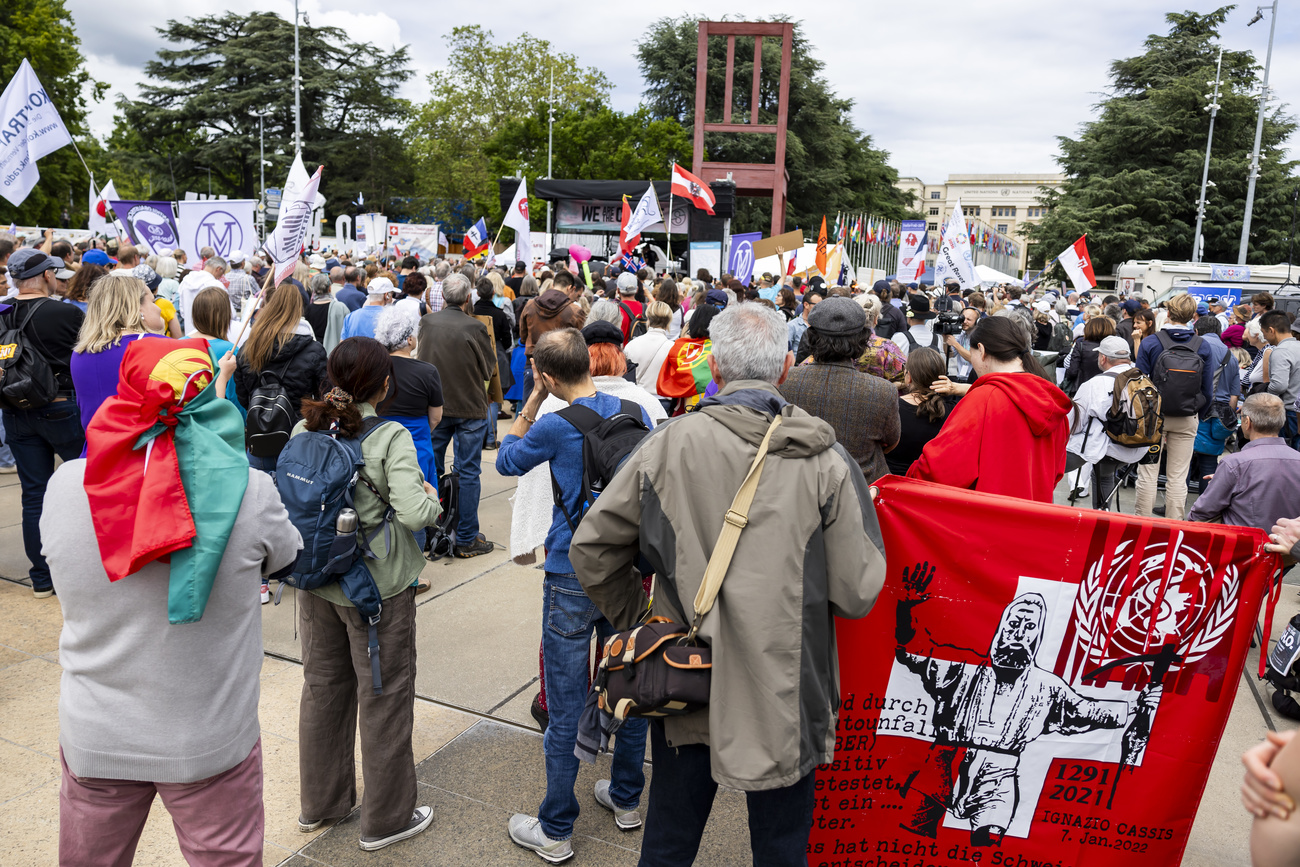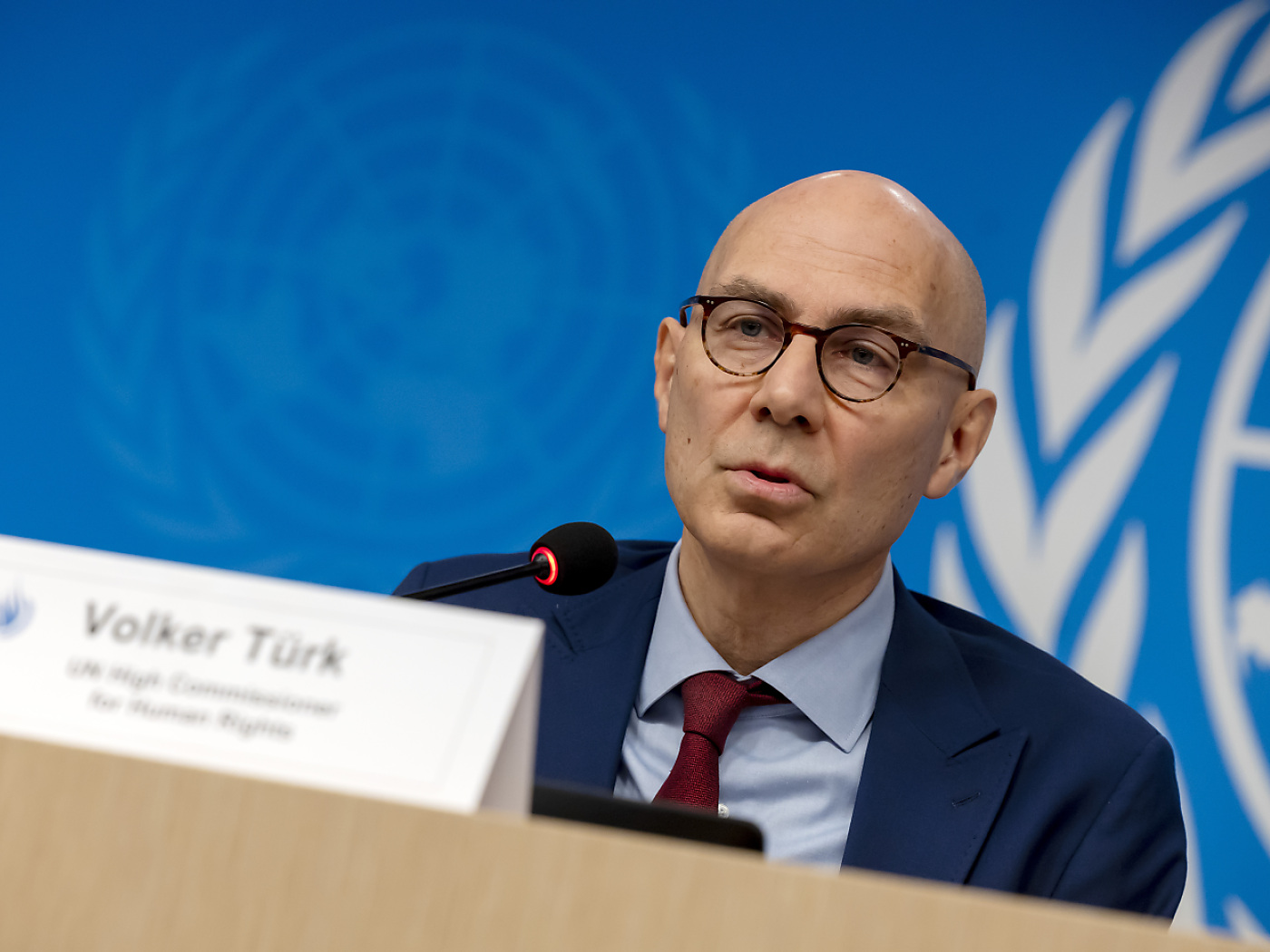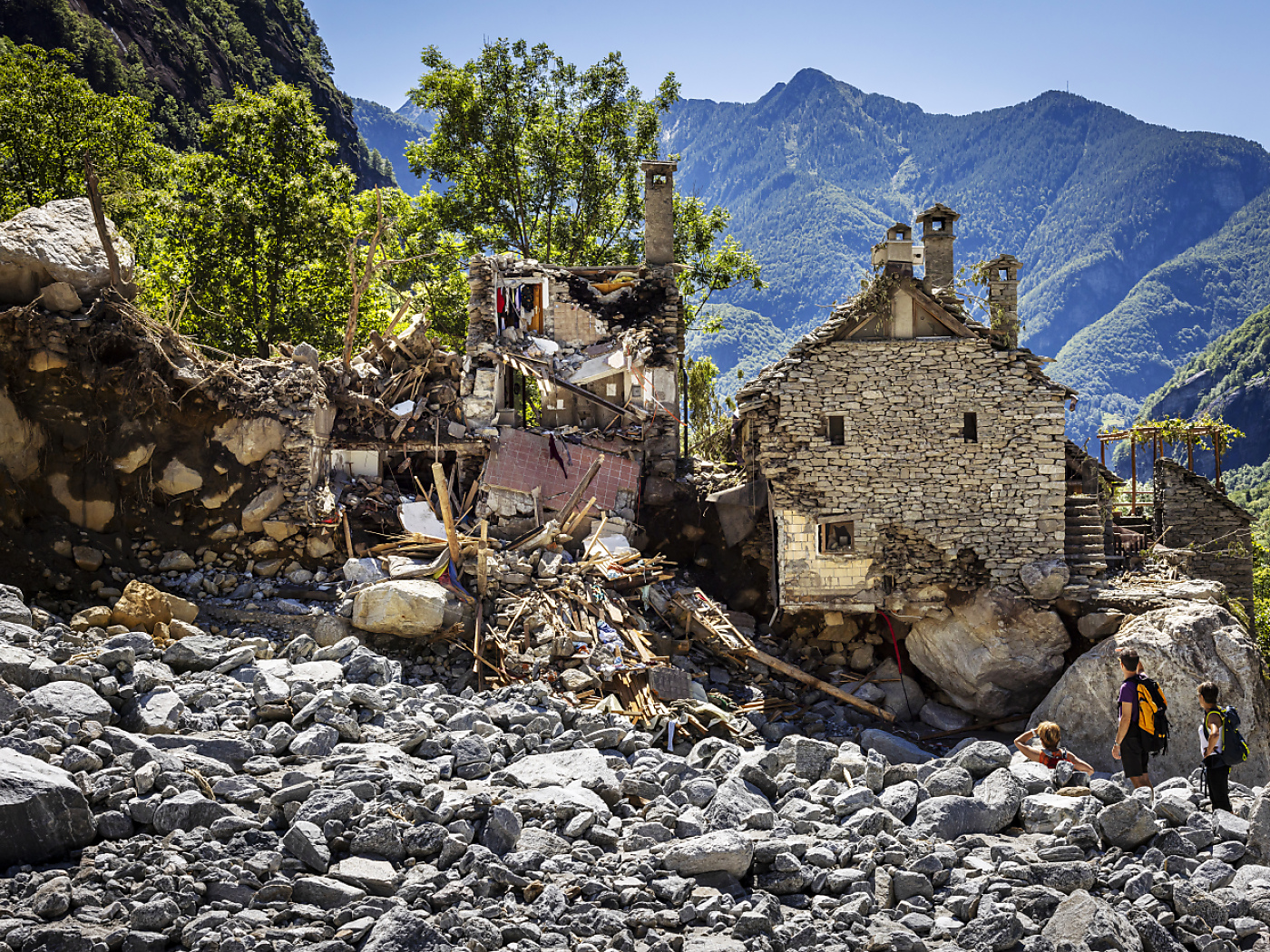Pandemic treaty to be finalised by 2025, WHO says

Talks aimed at reaching a global agreement on how to better fight pandemics will be concluded by 2025 or earlier if possible, the Geneva-based World Health Organization (WHO) said on Saturday.
Do you want to read our weekly top stories? Subscribe here.
WHO members are extending by a year the negotiations for an agreement to combat the pandemics that continue to divide them. On Saturday in Geneva, they succeeded in approving amendments to the International Health Regulations (IHR), including the launch of a “pandemic emergency”.
“This evening, we have all won,” WHO Director-General Tedros Adhanom Ghebreyesus told states. “The world has won.”
On the pandemic treaty, the 194 members agreed to a special session in the event of an treaty being finalised before the end of the year. The African group wanted an extension until the end of December. Western nations, in particular Switzerland, were in favour of more room for manoeuvre. The solution reflects the American desire for an extension of “one to two years”.
+ Inside Geneva Podcast: Will we get a pandemic treaty?
“Having a deadline was important,” Tedros told reporters. “The next pandemic is only a matter of time”. He added that governments probably won’t take a year to reach a decision.
A few days ago, the co-chairs of the intergovernmental negotiating group were forced to report the lack of consensus on the content to the World Health Assembly. Out of 34 articles, half are no longer in dispute after two years of talks.
American optimism
On Saturday evening, the co-chair of the negotiating group, Precious Matsoso, expressed the hope that “the work can be completed so that we can better respond to and anticipate pandemics”. “We have the will” of members states, echoed her colleague Roland Driece.
+ How the World Health Organization is trying to learn lessons from Covid-19
Talks are still being held up over intellectual property, equitable access to vaccines and the sharing of information on pathogens. The same goes for the common approach between human health, the health of other animal species and the environment. A few days ago, US Health Secretary Xavier Becerra said that “elements of a good agreement are on the table».
Western states are being targeted by certain groups for defending its pharmaceutical companies and its desire for voluntary rather than compulsory licences. “We have to let the negotiators do their job,” Swiss Interior Minister Elisabeth Baume-Schneider told Keystone-ATS on Monday about possible concessions.
“I don’t think the big countries are blocking anything,” said Matsoso. After the controversy over unequal access to vaccines during the coronavirus pandemic, the aim is to avoid the same discrimination in the future. A Covax system was launched to try to compensate for these disparities, but delays and distribution problems were encountered.
+ WHO members meet – again – to discuss a pandemic treaty
NGOs believe that the draft agreement does not sufficiently address this problem and may not prevent the discrepancies between rich and developing countries observed during the coronavirus. “There will be equity” in the agreement, said the American minister.
Commitment to equitable access
Another area of disagreement is the launch of a multilateral system of access and benefit sharing for pathogens with pandemic potential (PABS). This would be steered by the WHO and would enable indications about a virus to be relayed rapidly to avoid an obstruction similar to that experienced by China during the coronavirus outbreak.
But developing countries are not keen on the additional requirements that this obligation would entail. Nor do they wish to assume the financial consequences. The same reservations apply to the “one health” approach, which links human health, the health of other animal species and the environment.
In other negotiations, the member countries managed to reach a consensus on amendments to the IHR. The IHR, established to respond to international health crises since 2005, had been widely questioned by certain countries for its ineffectiveness at the time of the pandemic.
The amendments will apply to states one year after each country has been notified of their validation. Only one country disassociated itself on Saturday evening.
The main innovation is that a new “pandemic emergency” may be declared by the WHO Director-General on the basis of common criteria. This addition will make it possible to activate the mechanisms provided for in the event of a future agreement against pandemics.
Swiss support
The criteria for this “emergency” include a global impact on societies and healthcare systems. This could be activated before “a real pandemic”, explained the co-chair of the negotiations, Ashley Bloomfield.
The amendments also include a commitment to equitable access to technologies against pathogens. The WHO will have to “facilitate and work to remove barriers” to this objective, particularly in the event of a pandemic. A mechanism for financial collaboration has been established to implement the new amendments, in particular to assist developing countries.
Switzerland spoke of a “crucial step towards protecting global health”. Tedros welcomed a “historic” decision that will strengthen national mechanisms and cooperation between States. According to Bloomfield, this success will ensure “greater equity”.
Also on Saturday evening, the Palestinian representative was able to sit alongside the member states for the first time. Other countries have extended the observer rights of this delegation, as they did recently at the UN General Assembly.
In the afternoon, between 600 and 700 opponents of vaccines demonstrated on the Place des Nations in Geneva criticising the WHO. Over the past two years, the WHO has had to contend with a huge misinformation campaign claiming that it will take the place of governments in managing health emergencies.
Adpated from French by DeepL/sb
This news story has been written and carefully fact-checked by an external editorial team. At SWI swissinfo.ch we select the most relevant news for an international audience and use automatic translation tools such as DeepL to translate it into English. Providing you with automatically translated news gives us the time to write more in-depth articles.
If you want to know more about how we work, have a look here, and if you have feedback on this news story please write to english@swissinfo.ch.

In compliance with the JTI standards
More: SWI swissinfo.ch certified by the Journalism Trust Initiative

















You can find an overview of ongoing debates with our journalists here . Please join us!
If you want to start a conversation about a topic raised in this article or want to report factual errors, email us at english@swissinfo.ch.